Climate change, fire and their implications for species
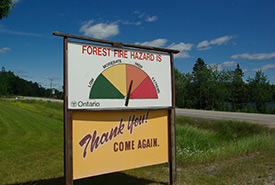
Will forest fire hazard signs be over into the red more often because of climate change? (Photo by Aaron H Warren CC BY-ND 2.0)
The role of fire in forest ecosystems Forest fires are powerful and devastating. But they are also necessary for the rejuvenation of some ecosystems. Many plants are well adapted to fire. Some trees have dense bark or shed their lower limbs to...
Five facts about grizzly bears that will surprise you
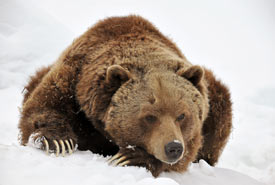
Grizzly bear (Photo by Caroline Henri)
Perhaps no other animal symbolizes the stunning beauty of the Canadian wilderness as much as the grizzly bear. A type of brown bear, grizzly bears occur in the wilderness of western and northern Canada. The species' scientific name, Ursus...
New guidelines for privately protected areas
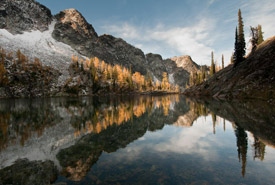
Alpine Lake on Darkwoods, BC (Photo by Bruce Kirkby)
Privately protected areas (PPAs) are protected areas under private governance, as defined by the International Union for Conservation of Nature (IUCN). Private governance includes non-governmental organizations, corporations, for-profit owners,...
Dr. Crayfish, I presume?
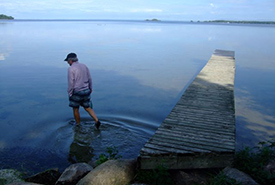
Premek Hamr, PhD (a.k.a. Dr. Crayfish) (Photo courtesy of Premek Hamr, PhD)
At the Nature Conservancy of Canada's annual Ontario Region staff meeting last May, a few of us stepped outside to wander the shoreline of Lake Simcoe and admire the sunset. As we rooted around the rocky beach, I took a few photos of plants and...
Where are they now? Intern Alumni Spotlight: Ryan Dudragne

Ryan Dudragne (Photo courtesy of Ryan Dudragne)
This blog marks the sixth Alumni Spotlight — a series highlighting individuals who have interned with the Nature Conservancy of Canada (NCC) in the past. We ended 2018 featuring Andrew Ryckman and are kicking off 2019 with bird enthusiast...
Ten good news nature conservation stories from 2018: Our collective actions can have a big impact
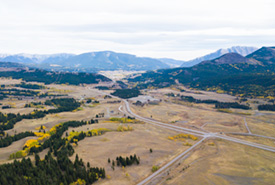
Lands within the Jim Prentice Wildlife Corridor (Photo by Brent Calver)
Around the world, we are at a crossroads in our relationship with the planet. For the first time in human history our environmental impacts are happening at a scale that is affecting all life on Earth. Our collective experience in solving big,...
The Nature Conservancy of Canada's mark in conservation history
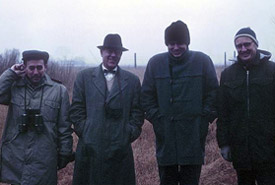
J. Bruce Falls, Richard Pough, Aird Lewis and David Fowle. First exploratory meeting for the Nature Conservancy of Canada, 1961 (NCC archives)
Since 1962, the Nature Conservancy of Canada (NCC) has worked to protect our country’s most important natural areas and the species they sustain. And to think it all started with a spirited group of naturalists in Toronto, Ontario, more than...
Puttin’ the boots to junk at Shoe Lake
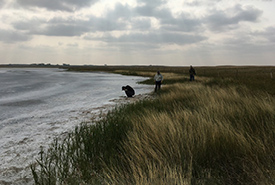
Conservation Volunteers at the Shoe Lake West property (Photo by Bill Armstrong)
Sometimes the best way to show your appreciation for critters and their habitat is to clean up what us humans have left lying around. That about sums up the purpose of a late-August Conservation Volunteers (CV) event at a Nature Conservancy of...
The boreal forests of Wilson Island
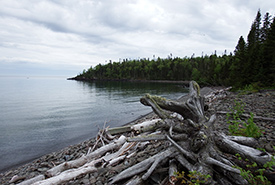
Wilson Island, ON (Photo by NCC)
It was time to do a deep dive into the boreal forests of Wilson Island, near the north shore of Lake Superior. The Nature Conservancy of Canada (NCC) acquired these amazing 5,000 acres (2,023 hectares) in 2008, and it was time to conduct an...
A novice’s guide to a Christmas Bird Count
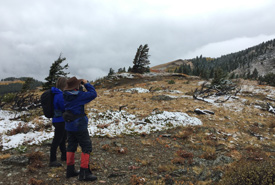
Bird count volunteers (Photo by NCC)
Scientific study and academia can feel a long way away from the everyday lives of most Canadians, but for anyone with a pair of binoculars and a passion for wildlife, there is an opportunity to join in on the largest and longest running citizen...

